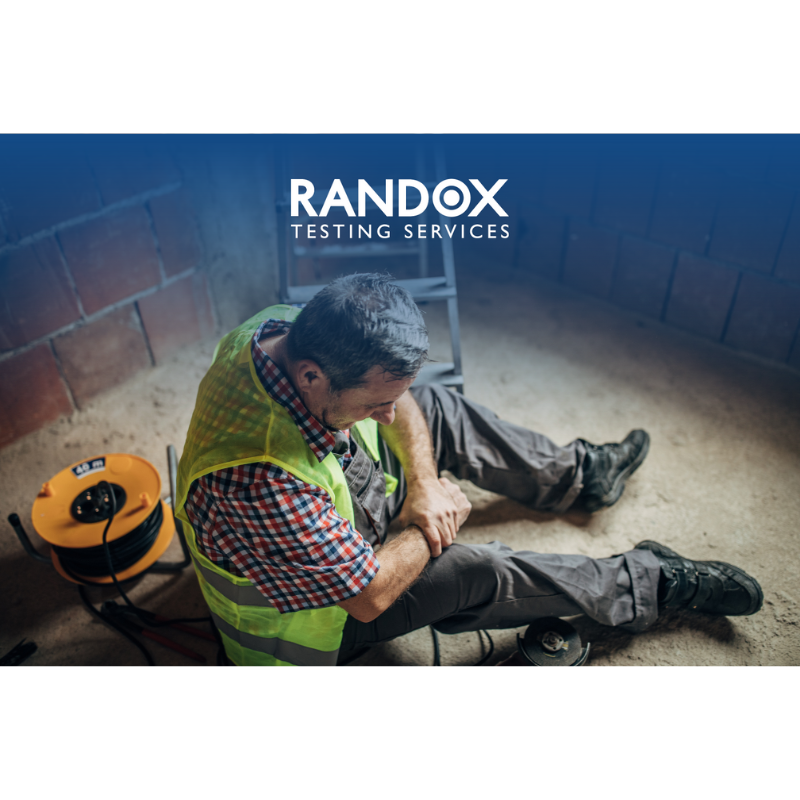The Critical Importance of Proper Training in Drug and Alcohol Testing Policies

The Critical Importance of Proper Training in Drug and Alcohol Testing Policies
In the dynamic and competitive landscape of today’s business world, ensuring a safe, productive, and efficient workplace is essential. Implementing effective drug and alcohol (D&A) policies is a key strategy to achieve this goal. At Randox Testing Services, we recognise the substantial advantages that thorough training on D&A policies can offer to businesses across diverse industries.
This blog will delve into the importance of proper training and its positive impact on your workplace.
Ensuring Compliance and Safety
Employers have a responsibility for the welfare of their employees under the Health and Safety at Work Act (1974) in the UK and the Safety, Health and Welfare Act (2005) in Ireland. This duty of care places ultimate responsibility on employers and company directors to ensure the safety of all employees. Failure to comply with this responsibility has previously led to criminal convictions of company CEOs, substantial fines, and often irreversible damage to an organisation’s reputation where serious breaches in health and safety have occurred.
Maintaining and implementing an active drug and alcohol policy is one way to demonstrate a duty of care to employees. However, it is crucial to ensure that everyone involved is adequately trained in executing this policy effectively. Here are some critical questions to consider:
• Have you been trained in how to act upon your D&A policy?
• If you employ a service provider to perform your D&A tests, do you know how to manage an employee who has failed a test?
• If you perform drug tests yourself, are you trained in how to collect, package, and courier biological specimens for laboratory analysis?
• If you perform alcohol tests yourself, is the breathalyser calibrated and its accuracy checked?
If you answered “No” to any of these questions, you might be failing to fulfil your responsibilities as a duty holder.
Real-World Consequences of Inadequate Training
1. Post-Accident Testing Gone Wrong
Consider the case of a Health and Safety manager at a fabrication company who called in their D&A testing provider following an accident. An employee had driven a forklift truck into a well-marked roof support, prompting a toxicology screen as part of the incident management process. While the breath test showed no alcohol, the urine test indicated previous cannabis use and the specimen was packaged appropriately and delivered to the laboratory for further analysis to confirm the presence and levels of markers for cannabis. Despite this, the employee was allowed to return to normal duties immediately after the test.
This decision could have had disastrous consequences if the employee was involved in another incident, potentially leading to fatalities. The employer’s lack of training and understanding in managing such incidents was evident. Although they had a D&A policy in place and initiated a test, they failed to consider their broader responsibilities, demonstrating a critical lack of duty of care by allowing the employee to return to work rather than suspended from duties or transferred into a less safety-critical role until the test results were returned from the laboratory.
This company had not been trained in drug and alcohol awareness training by their service provider.


2. The Pitfalls of Self-Collection Without Proper Training
In another example, a transportation company implemented a D&A policy and employed the services of a testing provider. As part of the implementation, the company nominated several employees to be trained as collectors as part of their self-collection agreement. These employees were trained and officially certified in testing breath for alcohol and on-site testing of urine for drugs.
Months later, a “for-cause” test was performed by one of the transportation company’s collectors, leading to ‘back-to-laboratory’ analysis for cocaine. However, multiple issues with the specimen and paperwork rendered the sample unsuitable for analysis as the laboratory could not unequivocally link the specimen to the donor as the collection process had not been performed correctly, meaning no actions could be taken against the employee.
The root cause? The collector had been trained internally rather than by the service provider, resulting in inadequate and incomplete training. This oversight not only posed a safety risk but also left an unexplained mark against an employee’s record.
The company failed their duty of care by not having all collectors trained by their service provider.
The Solution: Comprehensive Training by Your Service Provider
• If you have a D&A policy, it is imperative to ensure that you and your team are trained on how to use it effectively.
• All involved personnel should receive thorough training directly from your service provider.
• Failure to do so can result in health and safety breaches, serious injuries, or worse.
Benefits of Proper Training
Implementing proper training has several benefits for both employers and employees. In the UK, 40% of all workplace accidents are related to substance use/abuse¹. Proper training can help identify and mitigate these risks, ensuring a safer work environment. Moreover, 20% of workers and managers from a range of industries and company sizes report that a co-worker’s drinking had jeopardised their own productivity and safety². By conducting proper training and drug tests, employers can discourage drug use among their workforce, leading to higher productivity levels, better work quality, and fewer disruptions.
Alcohol misuse alone is estimated to cause up to 5% of all absences in the UK³, impacting overall productivity and efficiency. Additionally, the total lost economic output in Ireland due to alcohol sits at €614m (€195 million due to absenteeism, €185 million due to accidents at work, €169 million due to suicide and €65 million due to premature mortality) ⁴. Implementing a robust training and testing program can help reduce these costs by preventing accidents and identifying issues before they escalate.
A workplace culture that prioritises safety and health through proper training fosters a positive and supportive environment. Around 33% of UK employers provide information for employees on sources of support for drug and alcohol-related problems⁵, highlighting the need for comprehensive support systems. Employees are more likely to feel valued and cared for knowing that their employer is committed to maintaining a safe workplace. This can lead to increased job satisfaction, lower turnover rates, and a more cohesive team.
To Conclude
Training is an intricate part of any D&A policy. Without proper training, even the best policies can fail, leading to significant risks and liabilities for your organisation. Ensure that your team is well-trained and fully prepared to manage all aspects of D&A testing to uphold your duty of care and protect your workforce.
At Randox Testing Services, we provide reliable and efficient training solutions to help businesses maintain a safe, productive, and compliant workplace. By investing in comprehensive training, employers can protect their employees, enhance productivity, reduce costs, and foster a positive work environment.
For more information or to discuss our training services, please contact us at testingservices@randox.com or visit www.randoxtestingservices.com/training-and-education/

References
1. Readers Digest (2019). The Hidden Cost of Substance Abuse in the UK Workplace. Available at: https://www.readersdigest.co.uk/health/wellbeing/the-hidden-cost-of-substance-abuse-in-the-uk-workplace [Accessed 22 May 2024].
2. Wilcox, S. (2015). Drugs and Alcohol in the Workplace. [online] ncadd.us. Available at: https://ncadd.us/about-addiction/addiction-update/drugs-and-alcohol-in-the-workplace.
3. TUC (2019). Drugs and Alcohol in the Workplace. Available at: https://www.tuc.org.uk/resource/drugs-and-alcohol-workplace.
4. Alcohol Action Ireland. (n.d.). Alcohol’s cost to society. [online] Available at: https://alcoholireland.ie/facts-about-alcohol/alcohol-cost-to-society/ [Accessed 25 Jun. 2024].
5. NHS Digital (2021). Statistics on Drug Misuse England 2020 – NHS Digital. Available at: https://digital.nhs.uk/data-and-information/publications/statistical/statistics-on-drug-misuse/2020.